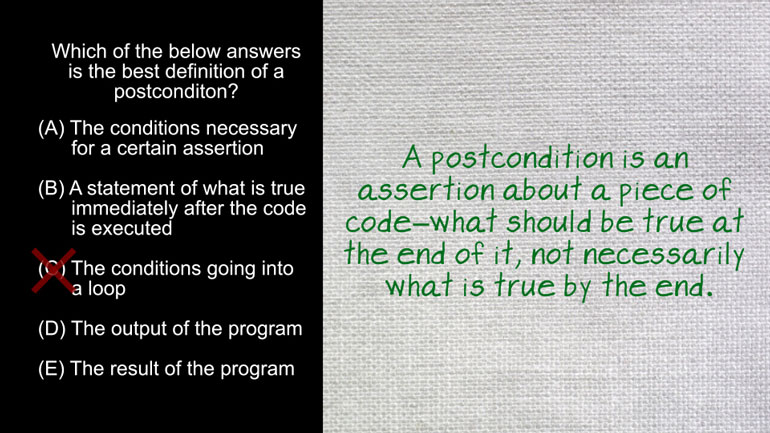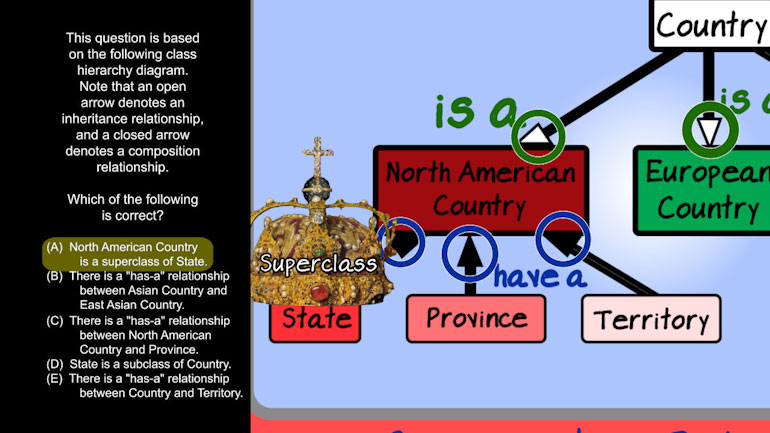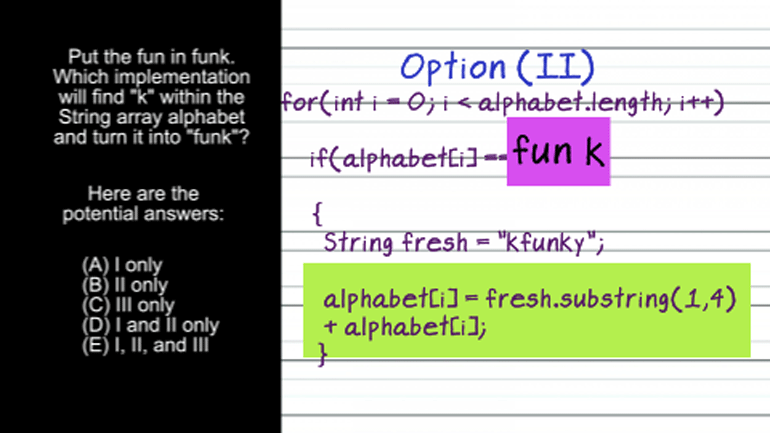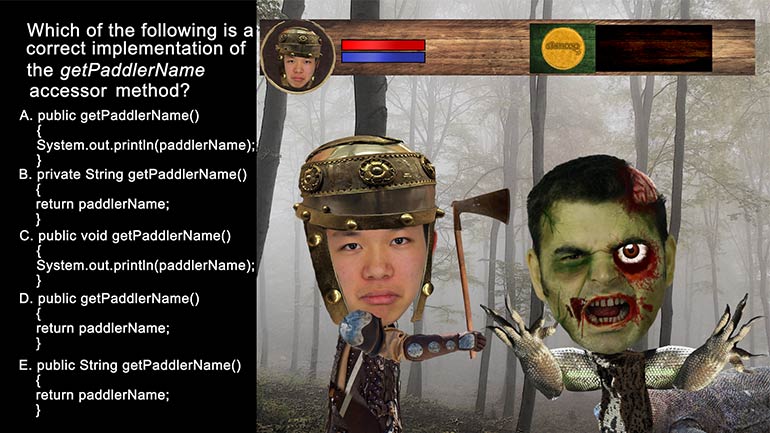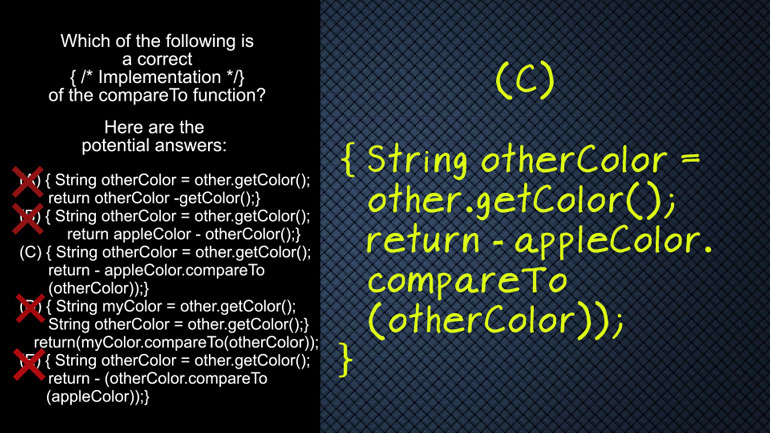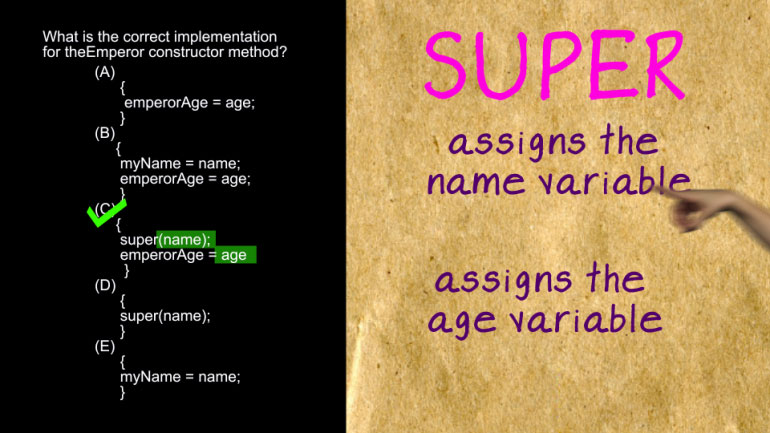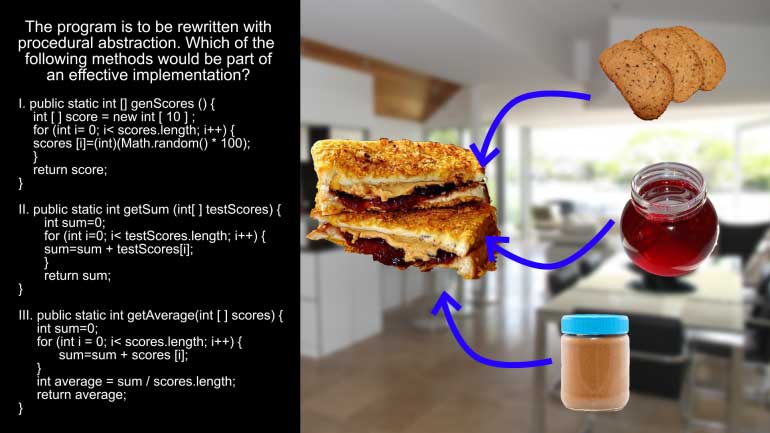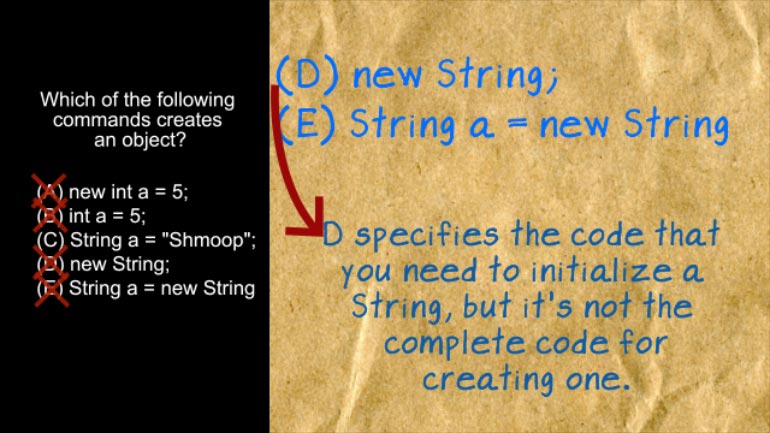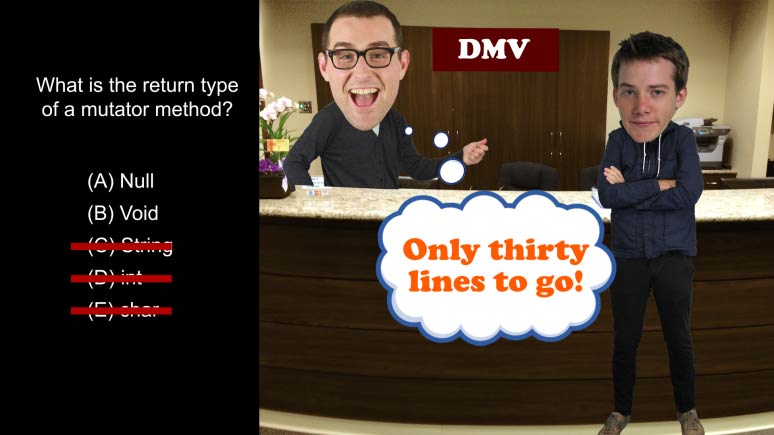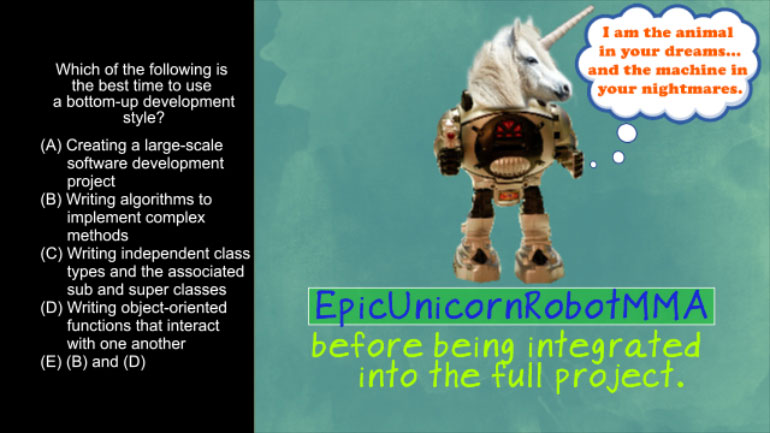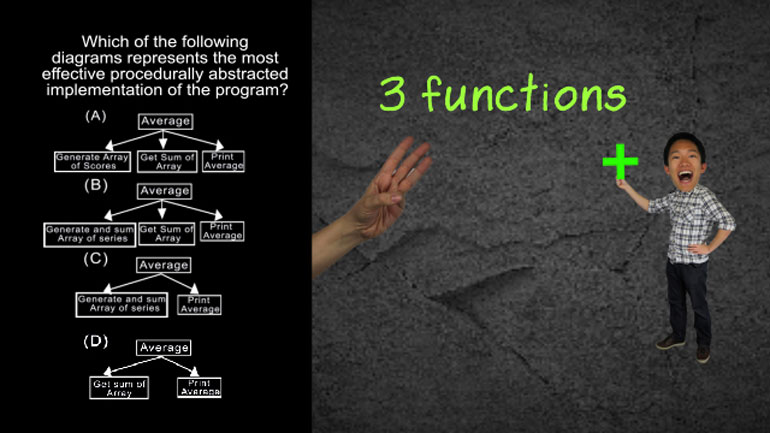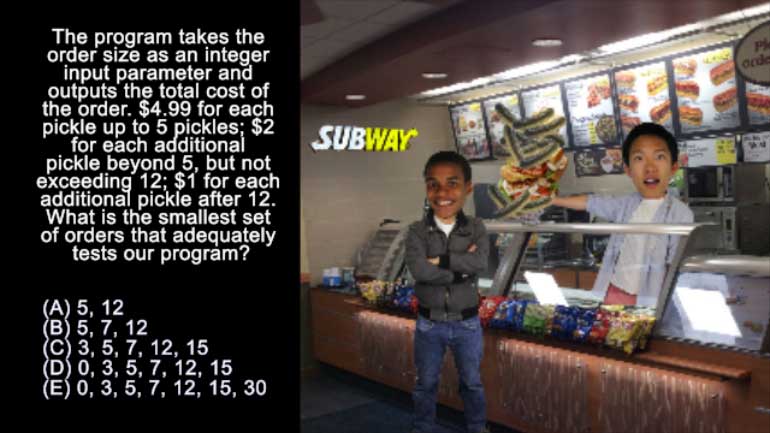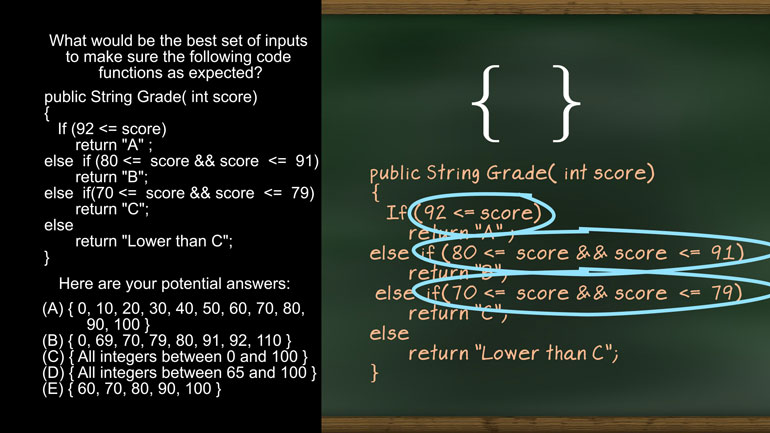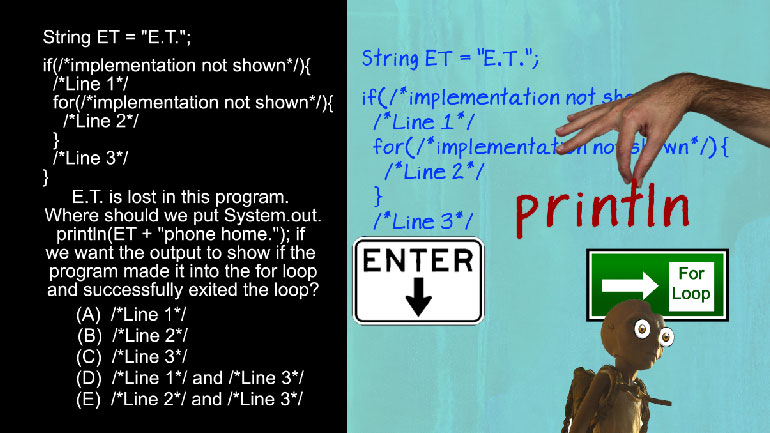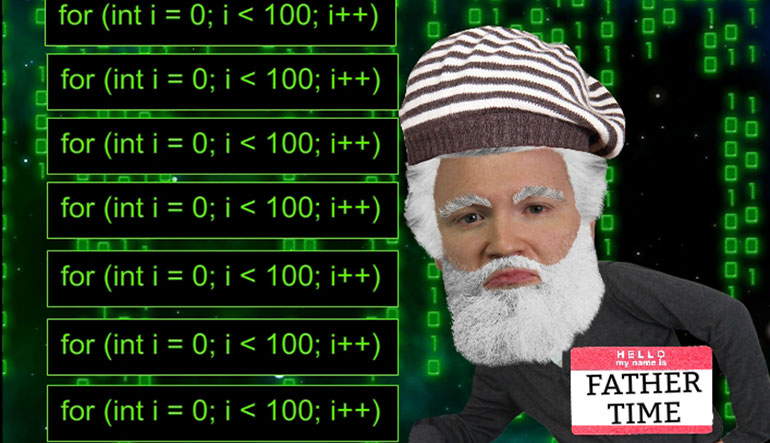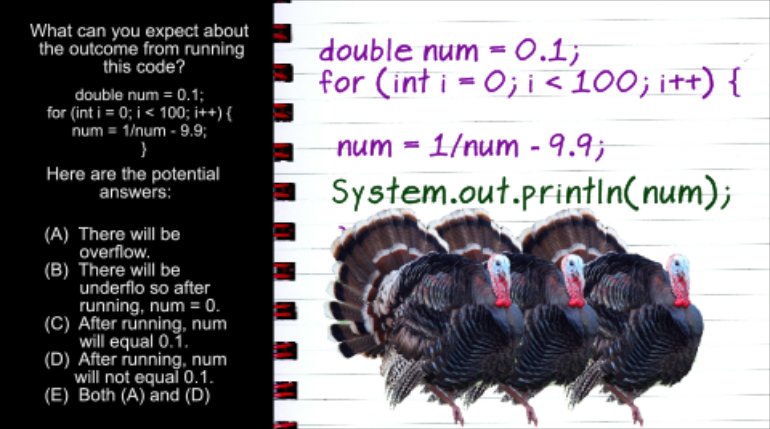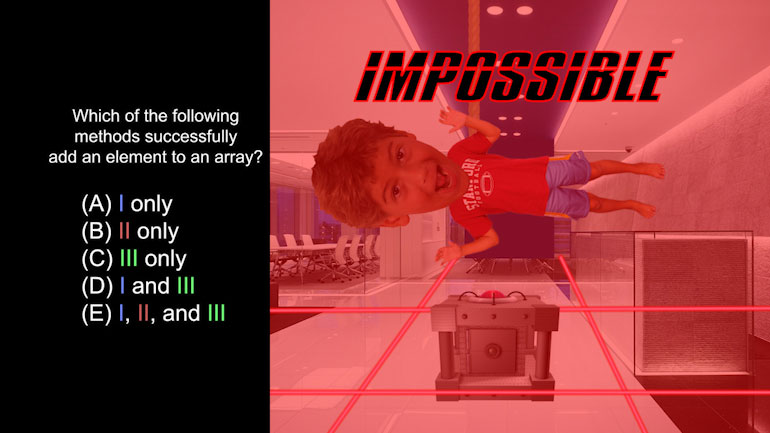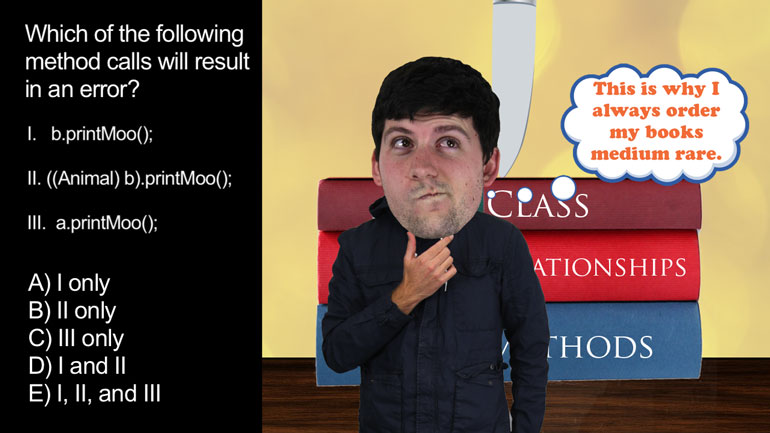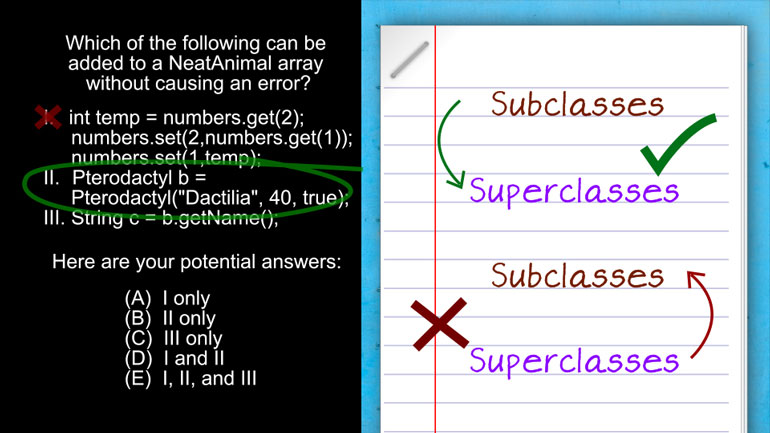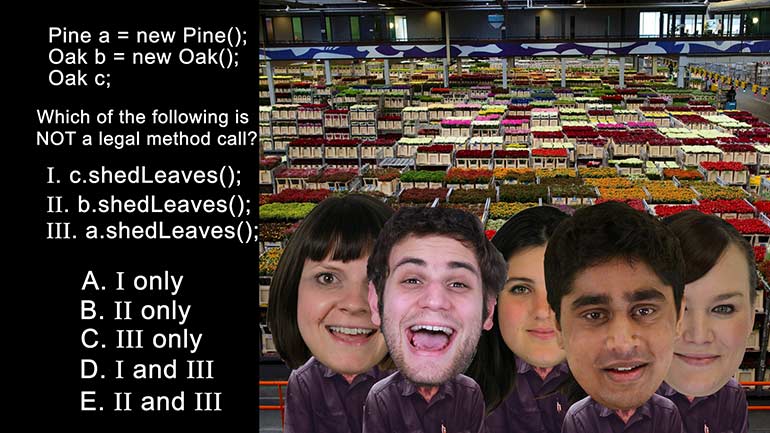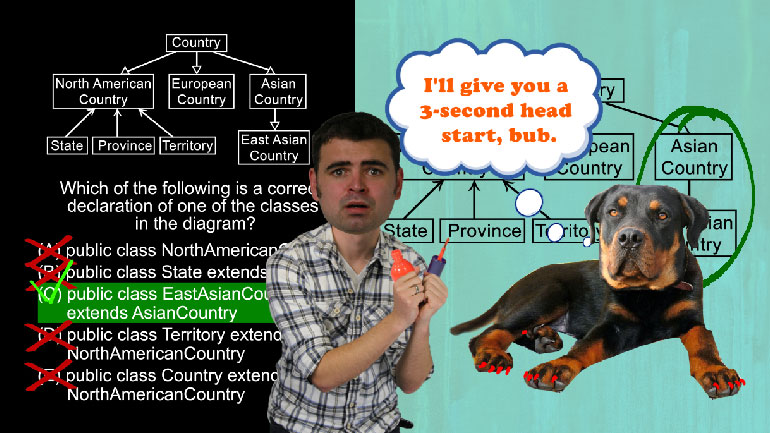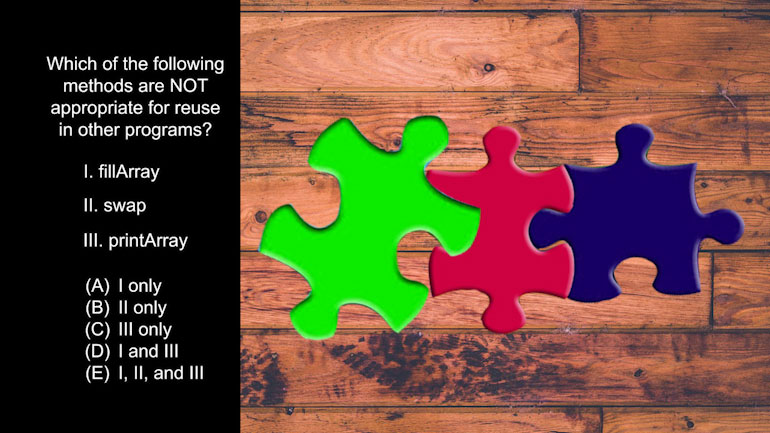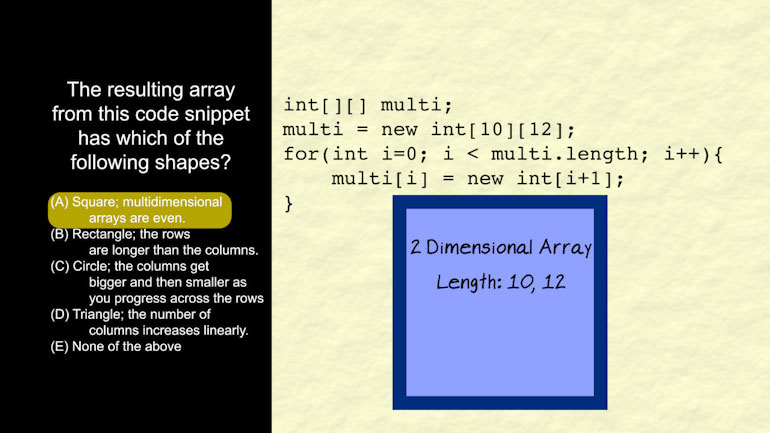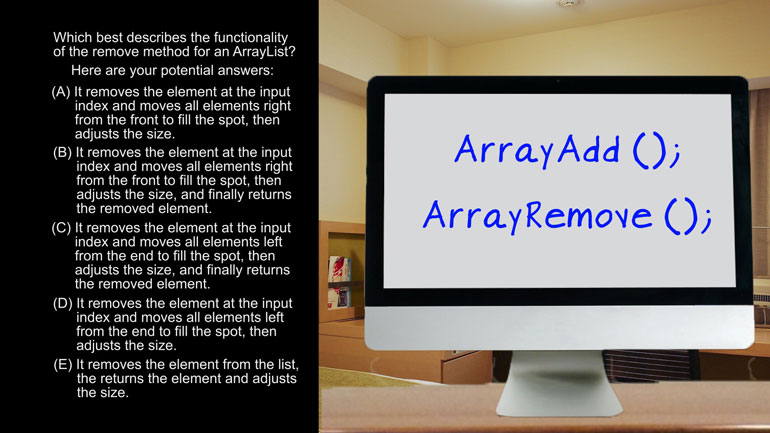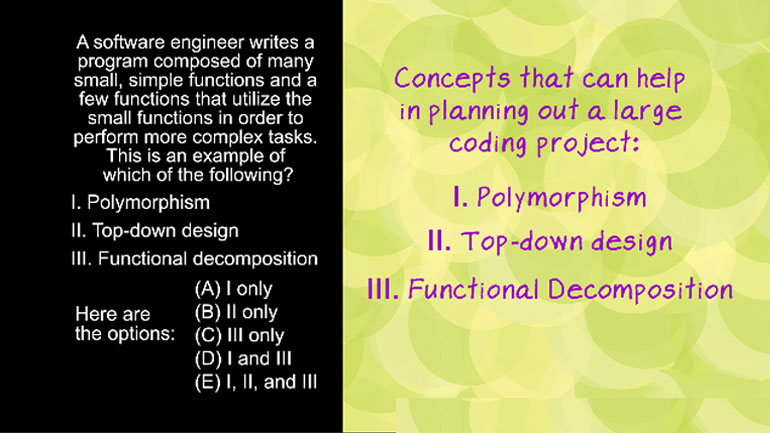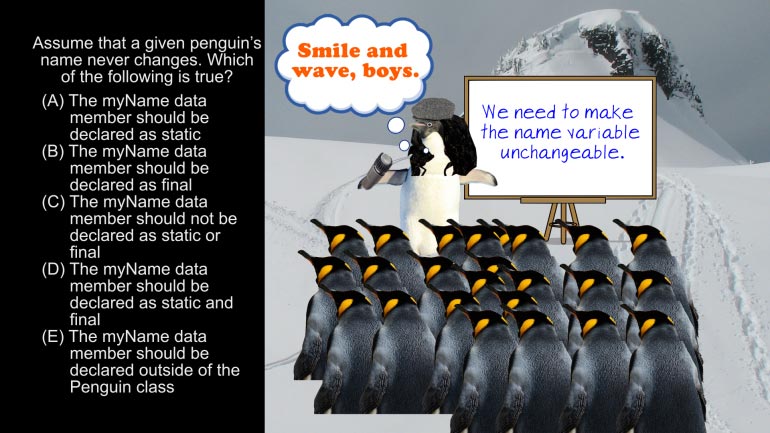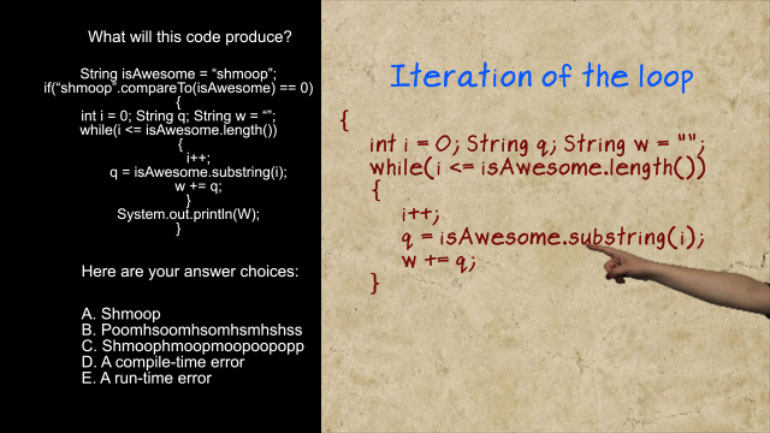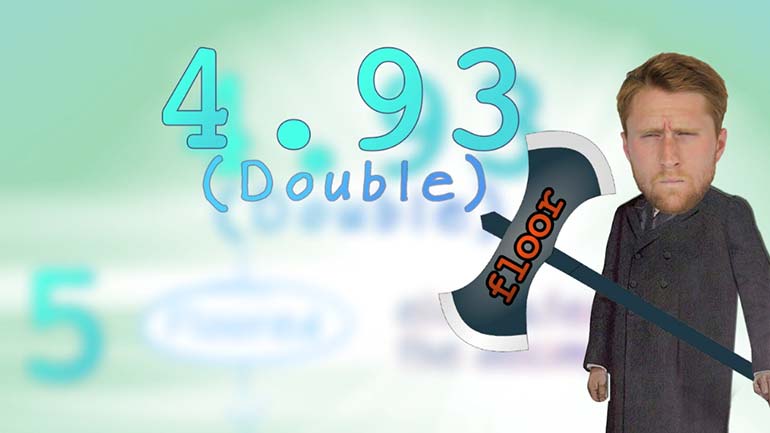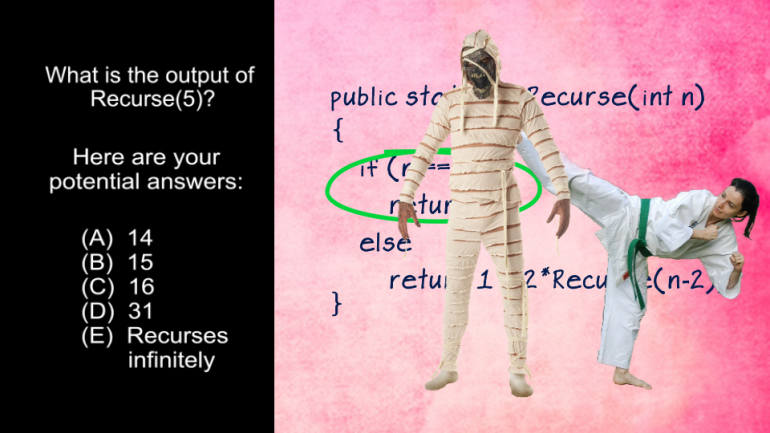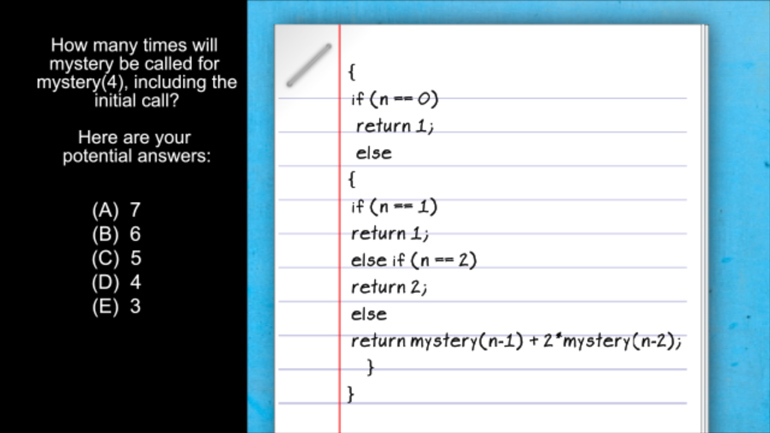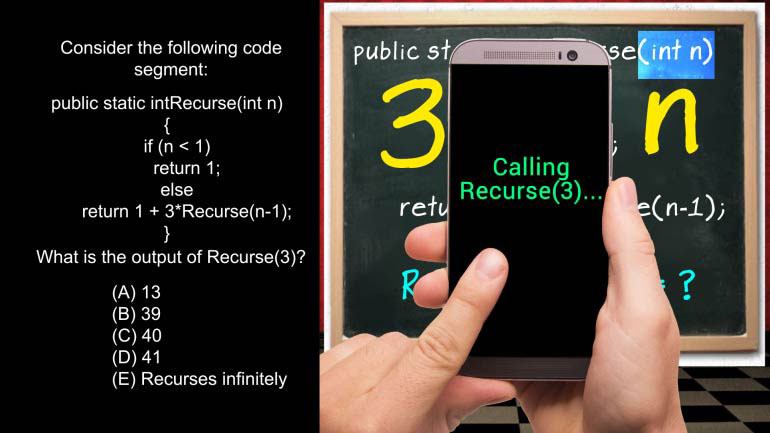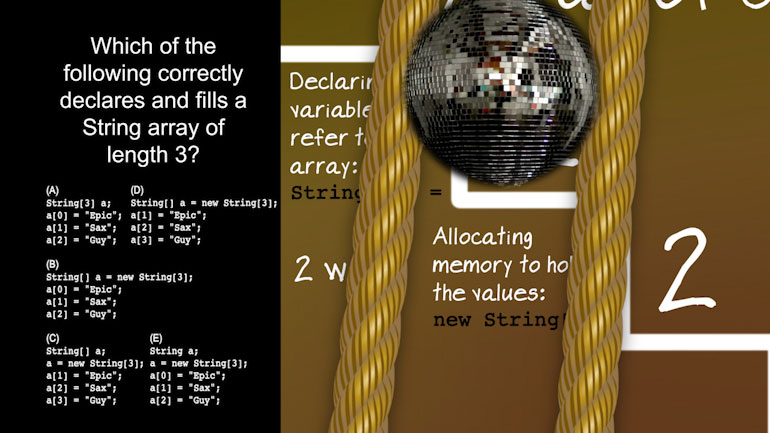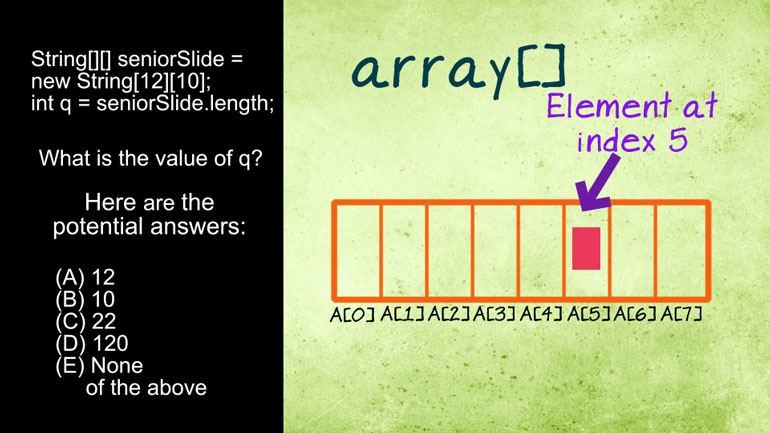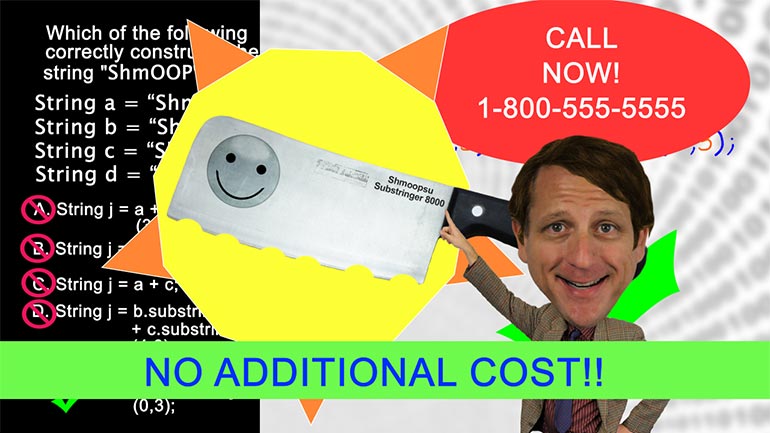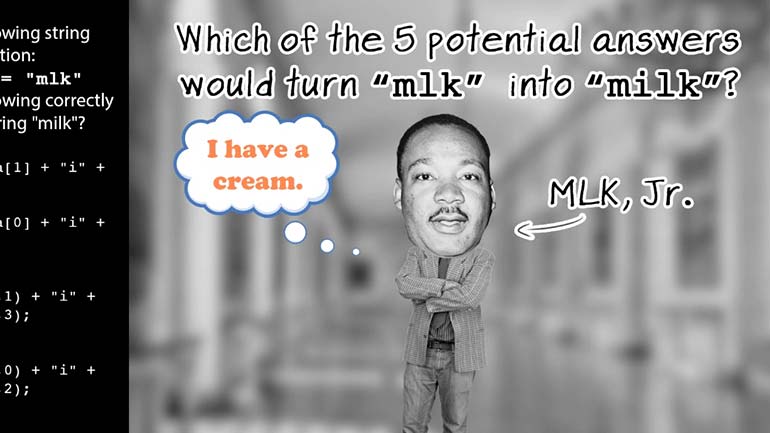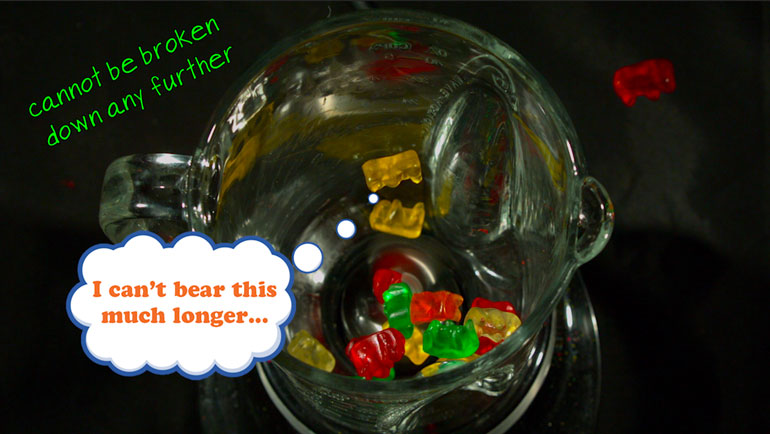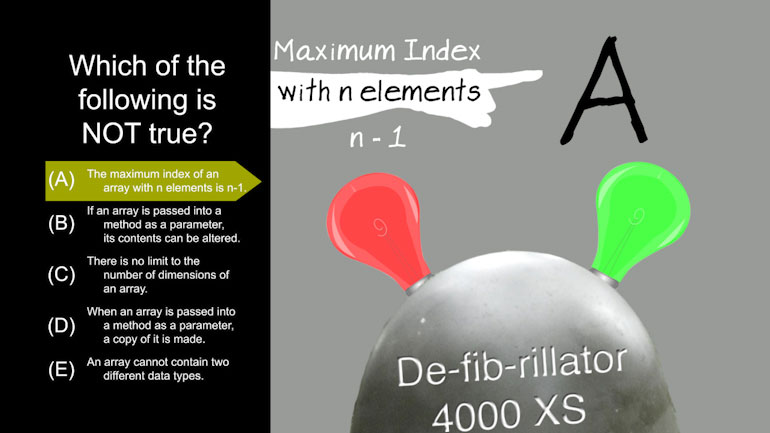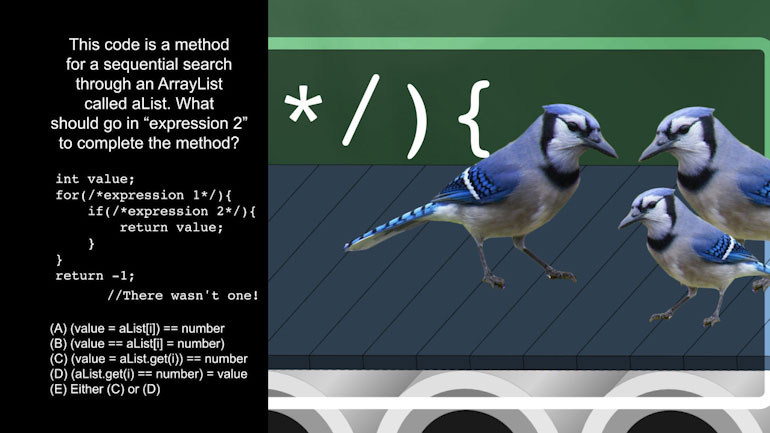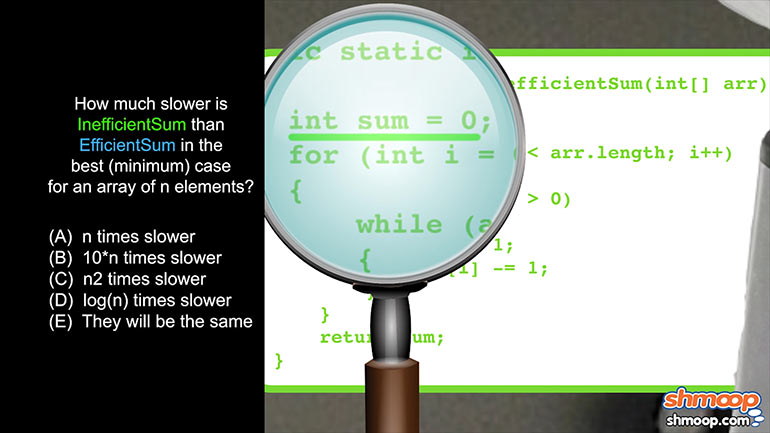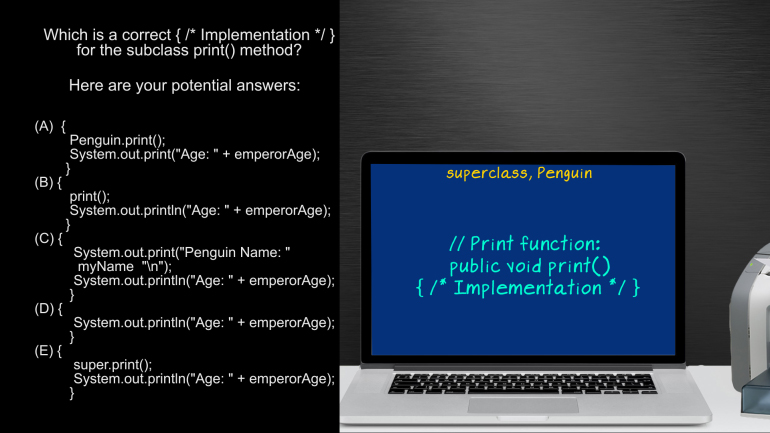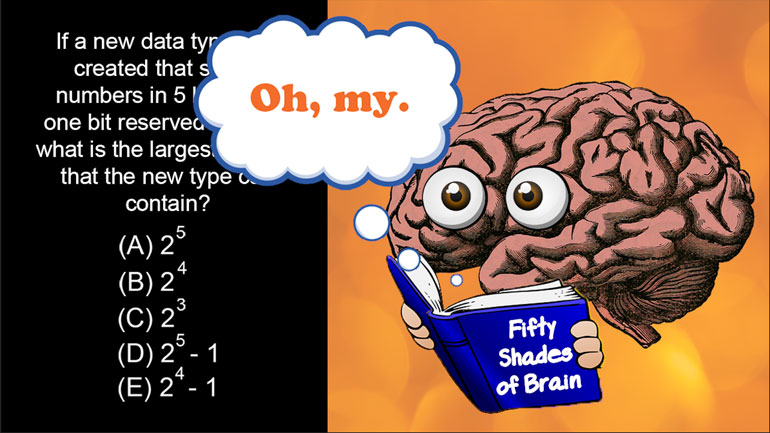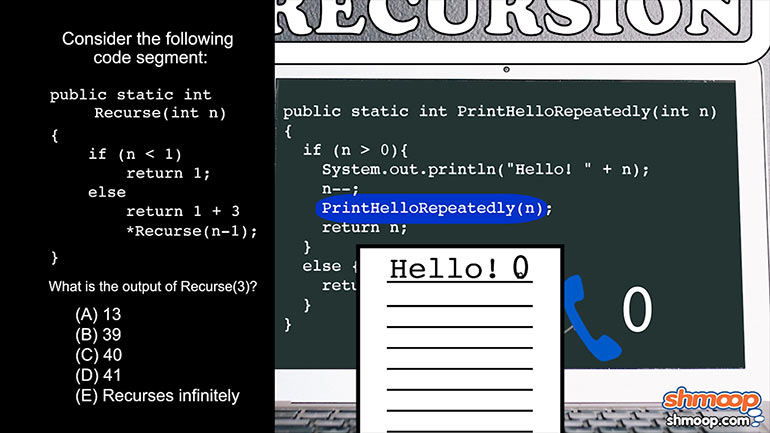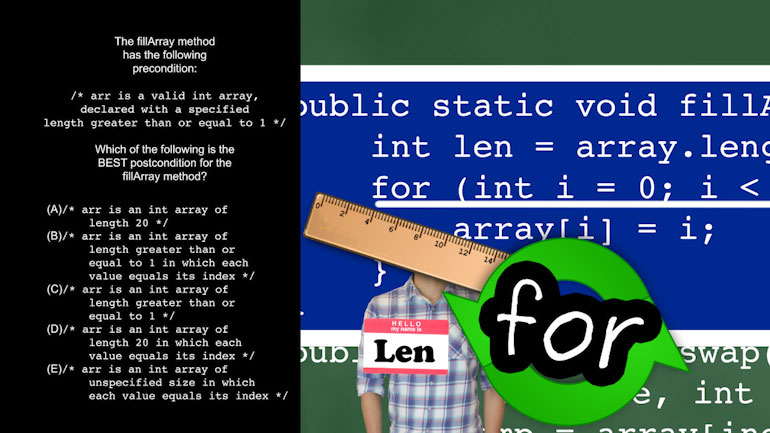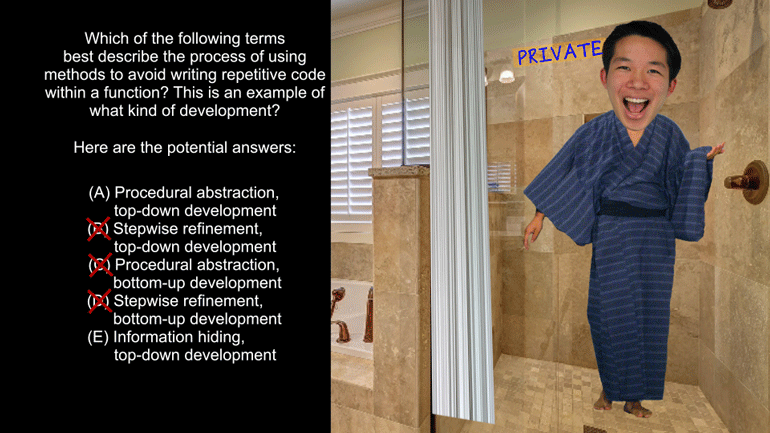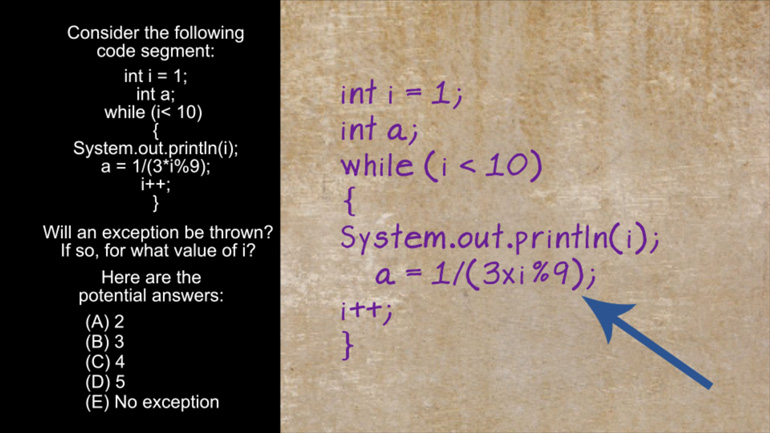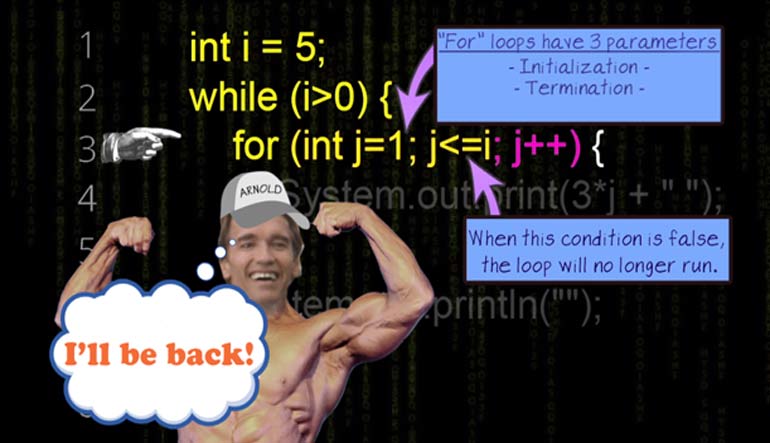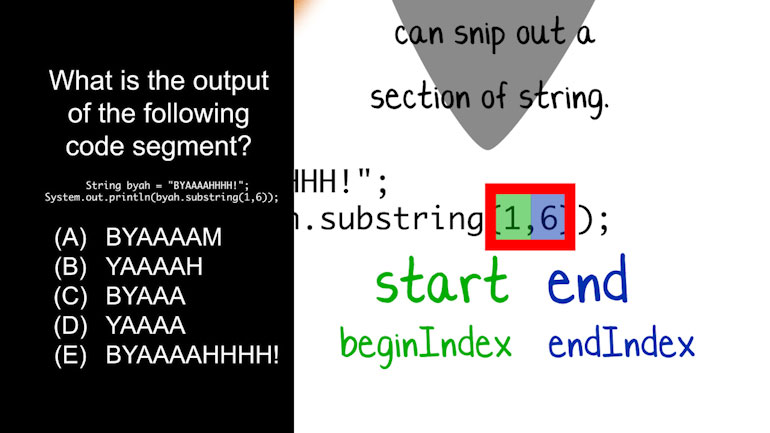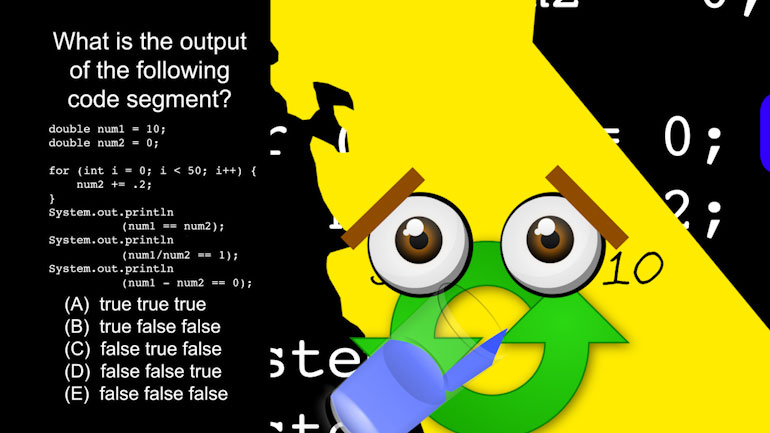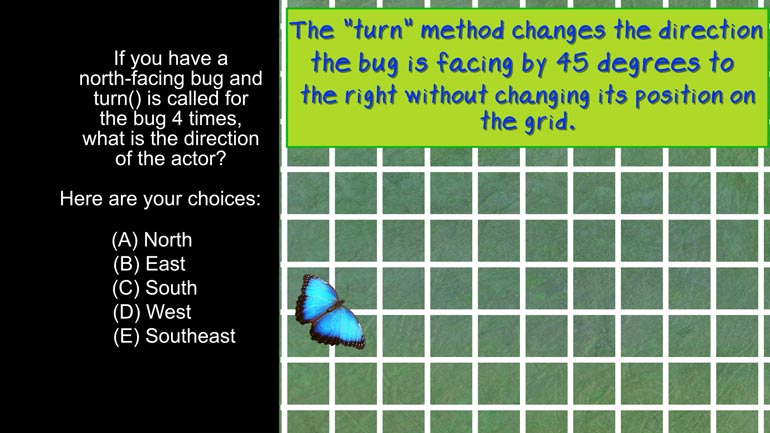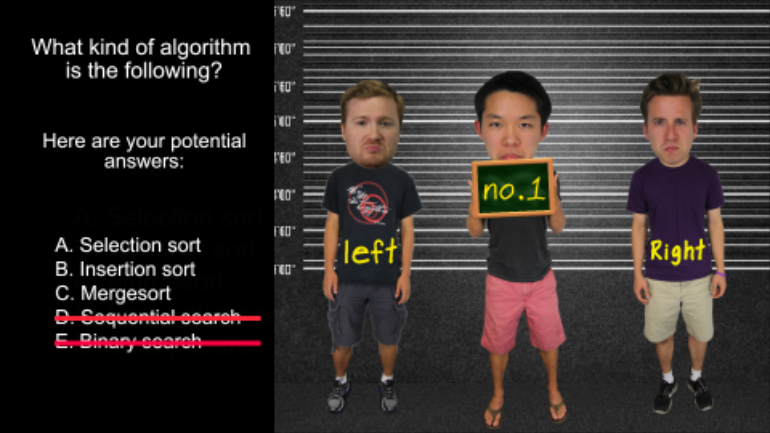ShmoopTube
Where Monty Python meets your 10th grade teacher.
Search Thousands of Shmoop Videos
AP Computer Science A Videos 108 videos
AP Computer Science: Classes and Objects Drill 3, Problem 5. Which of the following is not an object?
AP Computer Science: Classes and Objects Drill 3, Problem 4. Which of the following are objects?
AP Computer Science 4.1 Classes and Objects. Which of the answers is the best definition of a postcondition?
AP Computer Science 3.5 Review of the Basics 178 Views
Share It!
Description:
Using the modulo in arithmetic.
Transcript
- 00:00
Sorry And here's your shmoop du jour brought to you
- 00:05
by supreme galactic leader module o All praise modelo All
- 00:13
right If mod took precedence over multiplication what would be
- 00:16
the result of while the following All right And here
- 00:22
the potential answers Okay well we already know that computer
Full Transcript
- 00:32
science and math are joined at the hip and it
- 00:34
sounds like this is at its core a simple math
- 00:37
question The module o operator often represented by a percent
- 00:40
sign and shortened to mod will return the remainder of
- 00:44
those two values after division takes place So for example
- 00:47
the result of five mod too would be one since
- 00:50
that's the remainder you'd get from dividing two into five
- 00:55
in another case twelve mod for would return zero because
- 00:57
there'd be no remainder after dividing twelve by four just
- 01:00
be three and nothing left over So this question is
- 01:03
asking us to give mod precedence over multiplication This brings
- 01:06
us all the way back to the order of operations
- 01:08
Or pam does he remember pim das Rights are buddy
- 01:12
We're going to be using that here with ma djalo
- 01:14
ahead of multiplication in line So let's show that preference
- 01:18
by putting ma djalo operations in parentheses Well we'll start
- 01:21
with four mod five before divided by five zero with
- 01:25
a remainder of four so we'll get a four There
- 01:28
are ten mod seven would be three because ten divided
- 01:30
by seven is one with remainder of three Then we
- 01:32
have four month three which will be one of three
- 01:35
dozen foreign there's One left over and now we're left
- 01:37
with two times four divided by three times one Well
- 01:41
two times four eight of course and three times one
- 01:44
is three So now we're down A divided by three
- 01:47
eight five two three is too pulling six six six
- 01:50
six six forever like devil But all the possible answers
- 01:53
here our imagers So we'll convert this rather than rounding
- 01:56
up converting the repeating two point six six six two
- 01:58
an imager is this name is mouring The number that
- 02:02
will get two instead of three on Our answer is
- 02:05
c it's all well and good That module exists But
- 02:08
when would a person actually use it Well one real
- 02:11
world application of modular is to check if the number
- 02:14
is odd or even if ex mod to return zero
- 02:17
That means there was no remainder X is divisible by
- 02:20
two And therefore even if you were to expand that
- 02:23
idea outward and write a method to check any given
- 02:25
number to see if it's divisible by anything but one
- 02:28
and itself well you have built your first automated prime
- 02:31
number validator conquering mathematics and ushering in the reign of 00:02:35.275 --> [endTime] universal king module it's One a Divisive Later indeed
Related Videos
AP Computer Science 1.2 GridWorld Case Study and APIs. What is the direction of the actor?
AP Computer Science 1.4 Standard Algorithms. How many times will mystery be called for mystery(n) for n > 1?
AP Computer Science 2.3 Classes and Objects. Which of the following is correct implementation of the Country class?
AP Computer Science 3.4 Inheritance, Abstraction, and Polymorphism. Which of the following will satisfy the conditional if statement for boo, str,...
AP Computer Science 4.2 Standard Algorithms. What kind of algorithm is the following?


